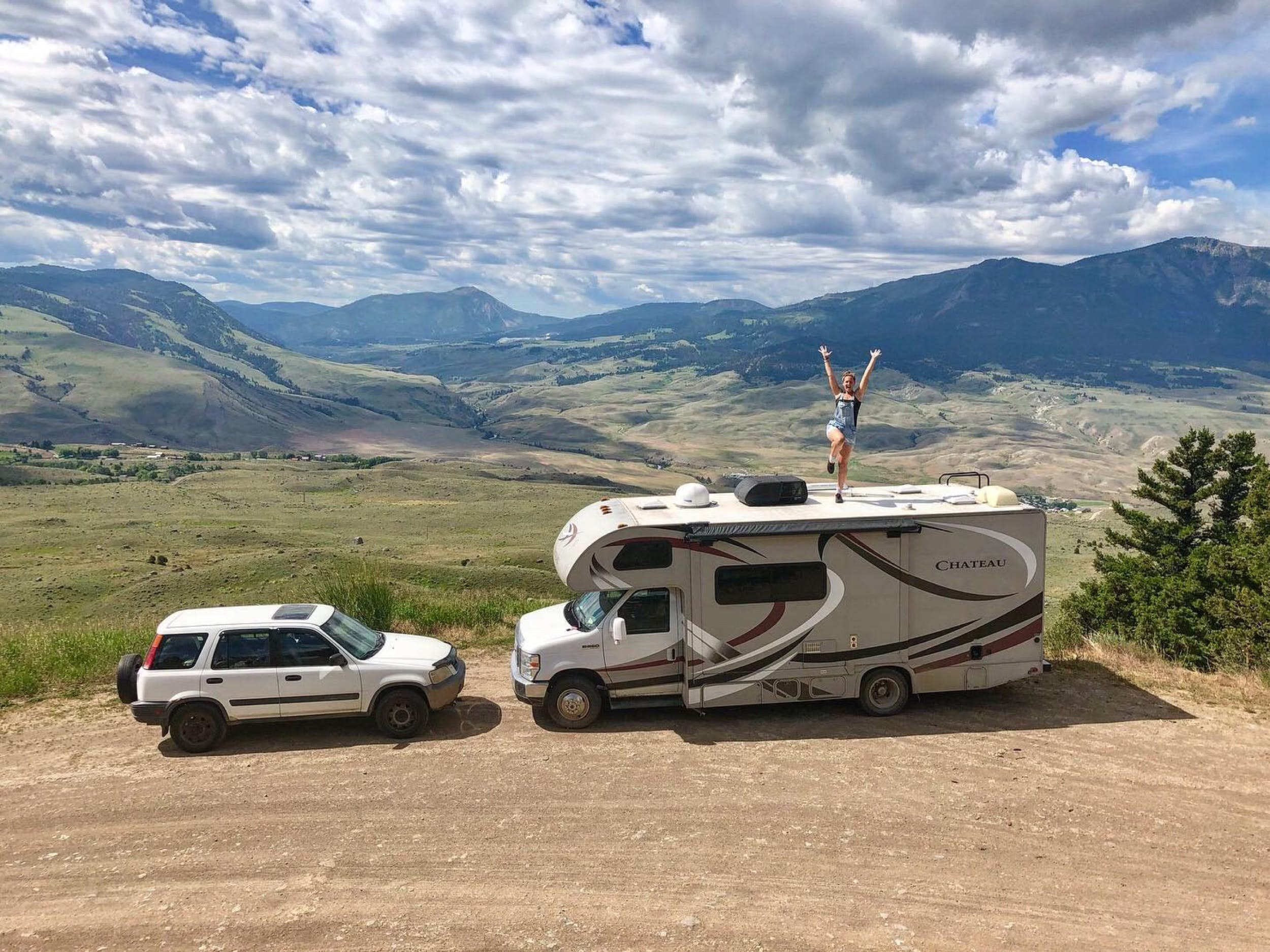Living in an RV full-time can be fun, allowing you to travel and find new places while having your home on wheels. However, like with anything else, there are both good and not-so-good aspects to this way of life. Let’s find the challenges of living in an RV full-time. RVs are small, so you’ll have less space for your things and activities. Problems like maintenance, connection issues, and dealing with rules and regulations could arise.
Here, we’ll look deeper into these challenges, helping you think about not-so-good parts of RV living. Remember, despite challenges, many people find ways to solve them and enjoy the unique experiences that full-time RV living can give you.
1. Challenging Budget Management
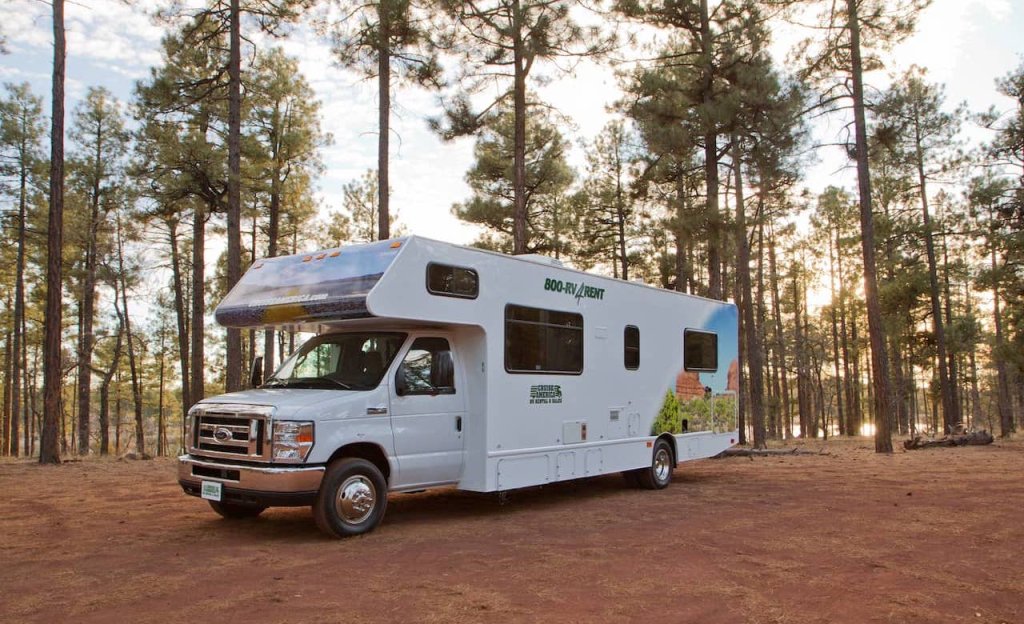
Handling money while traveling can be difficult. Even though living in an RV might seem like a good way to save money, costs can increase fast. You must pay for campgrounds, fuel, upkeep, and surprise repairs, which can stretch your budget. It’s really important to plan well, take a look at your spending, and have extra money for emergencies, and RV interior paint ideas are best for you. If you don’t plan your finances carefully, you could feel stressed about money.
2. Space Constraints and Storage
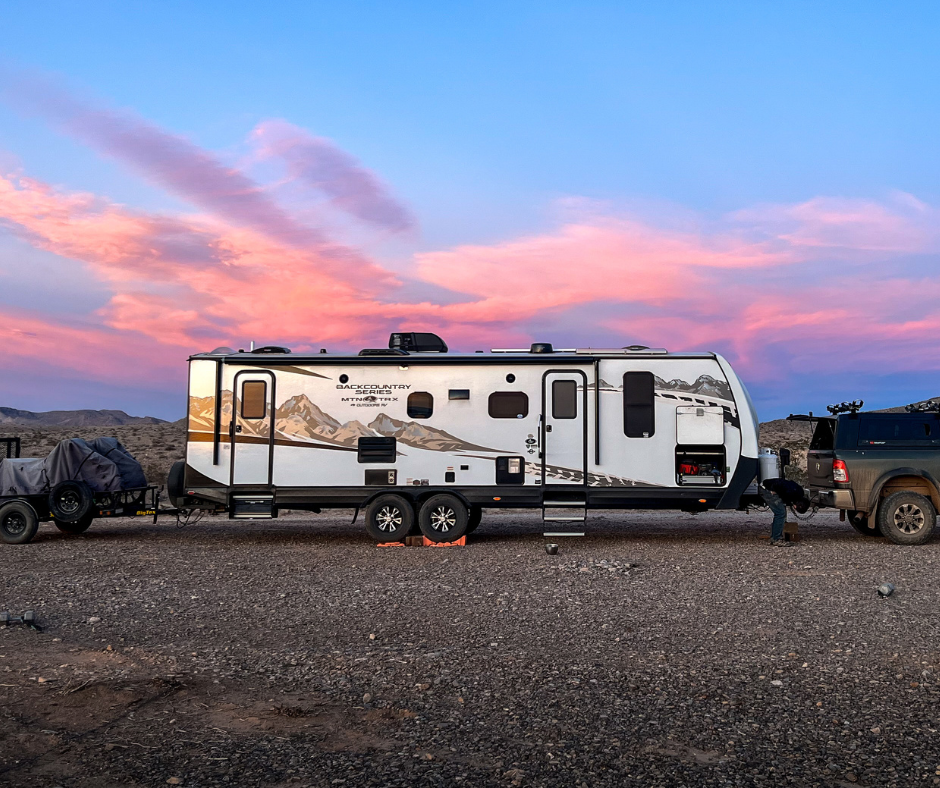
RVs have less room than regular homes. Because of this, you need to be really good at keeping things tidy to make the most of the small space. Figuring out where to put your clothes, kitchen stuff, and personal things is always a bit of a challenge. And it’s important to keep the living area from getting too messy so that it doesn’t feel too small. You have to carefully decide what things to keep and make sure you’re still comfortable.
3. Fluctuating Fuel Expenses
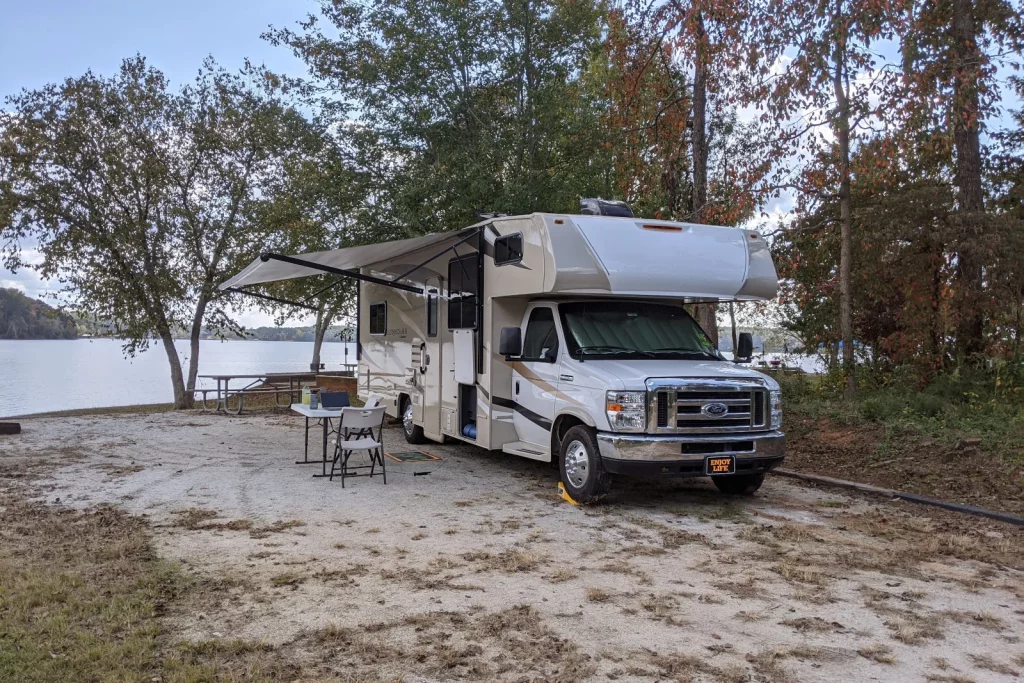
Living in an RV full-time has a downside, like the fuel cost can be unpredictable. RVs don’t use fuel efficiently, and when you move around a lot, these costs can become a big problem. The bigger and heavier your RV, the more fuel it uses. This uncertainty about how much money you’ll need for fuel can affect your travel plans and how financially stable you are.
4. Absence of Accessible Community Services
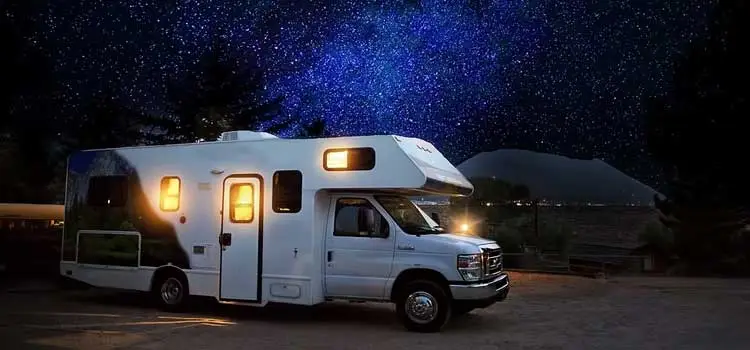
RVs give you a home on wheels, but they don’t have the convenient services of regular neighborhoods. It can be hard to find things like good healthcare, emergency help, and even basic stuff like getting your mail regularly. Also, finding good places to park the RV with all the necessary services can be tricky. This means you have to think a lot about your travel routes and what you’ll need ahead of time.
5. Dealing with Travel Fatigue
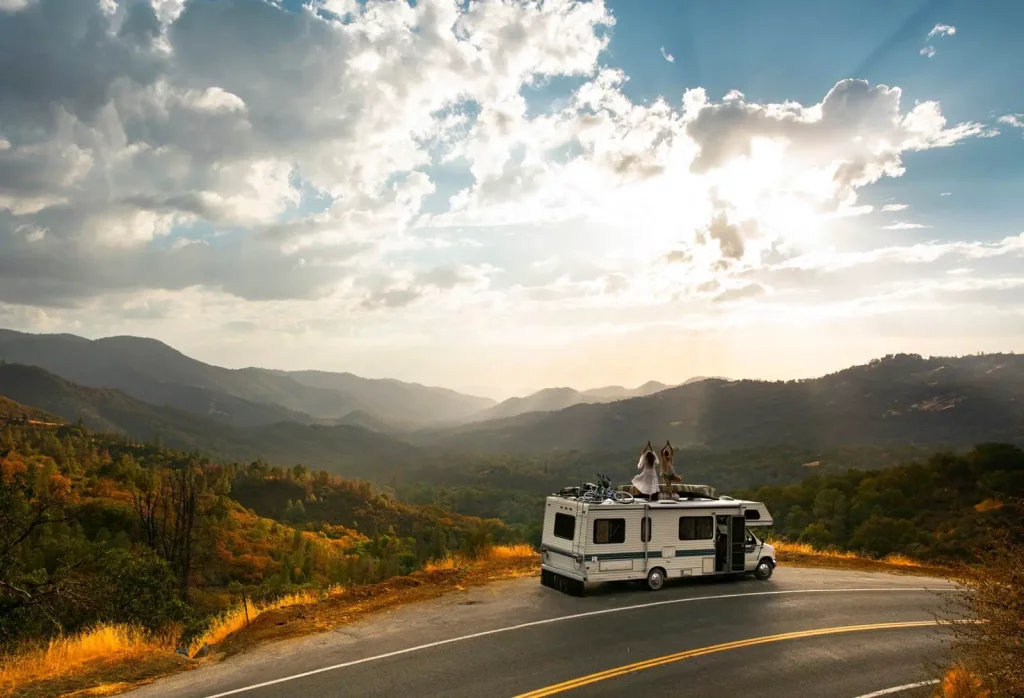
Regularly going from one place to another might sound fun, but it can make you really tired. Setting up camp, packing a bag, and traveling all the time can make your body and mind feel exhausted. Being in new places where everything is strange can also make you feel emotionally tired because you miss the cozy feeling of your usual home and routine.
6. Intermittent Wi-Fi and Cellular Coverage
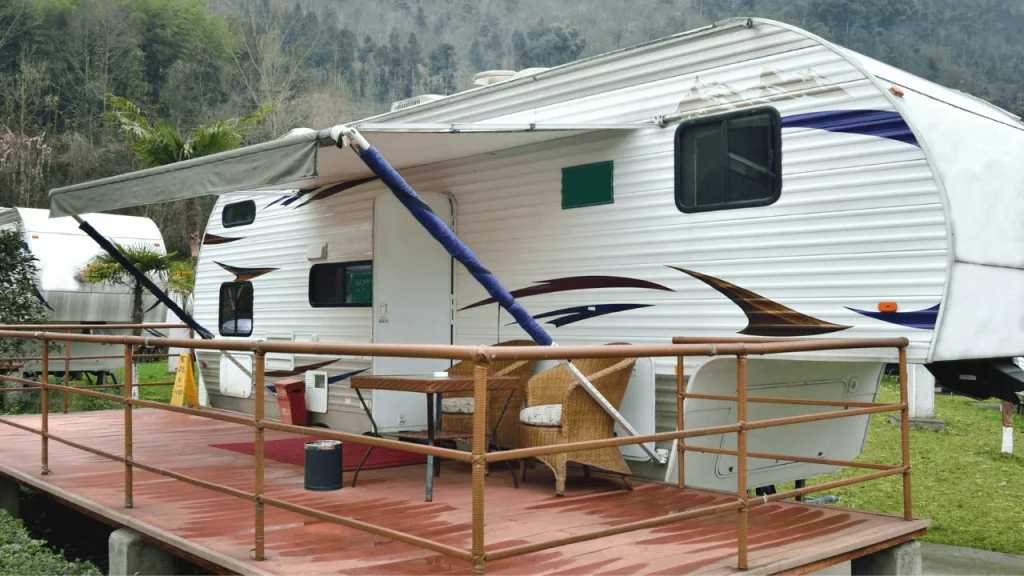
Although the thought of working while traveling is appealing, dealing with an unsteady internet connection can be a big problem. Places far from cities and even certain camping sites could have poor or on-and-off Wi-Fi and cell signals. This can disturb your work, talking with others, and even having fun. It’s really important to have backup plans, like special devices for the internet, or look into good ways to stay connected where you’re going. To stay online, you need to be ready to adjust and wait sometimes.
7. Managing RV Maintenance
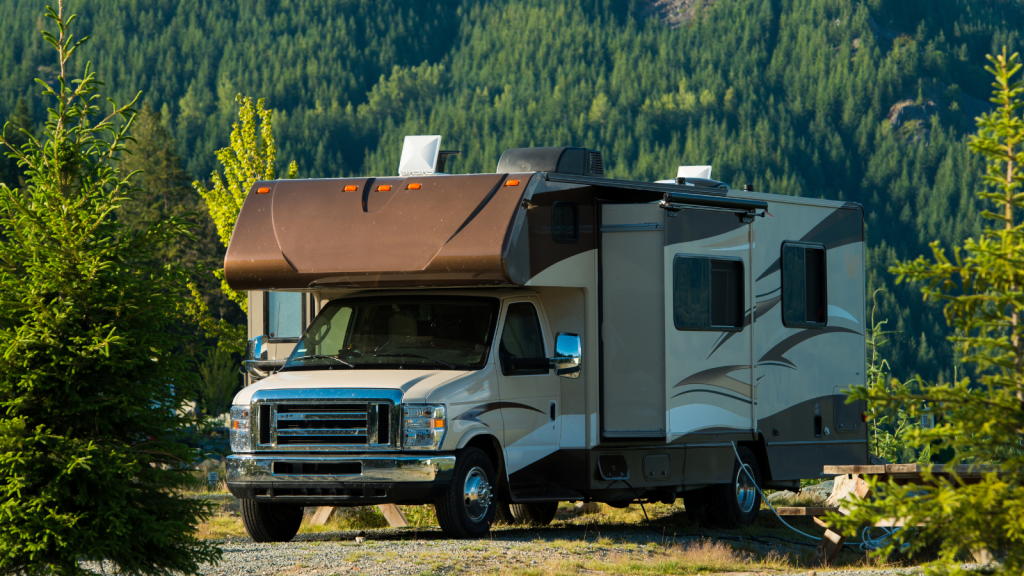
If you’re living in an RV all the time, you need to take care of it to keep it in good shape. This means doing regular checks on things like the engine, tires, and propane systems to make sure everything works well while you’re traveling. If you don’t take care of your RV, it could suddenly stop working, and fixing it could cost a lot of money. It might even be dangerous. So, it’s important to learn some basic do-it-yourself skills and have a toolbox to take care of your RV, or you should know a good mechanic who can help. When you take care of your RV, it will last longer, and your trips will be more fun.
8. Navigating Noise Levels in Campgrounds
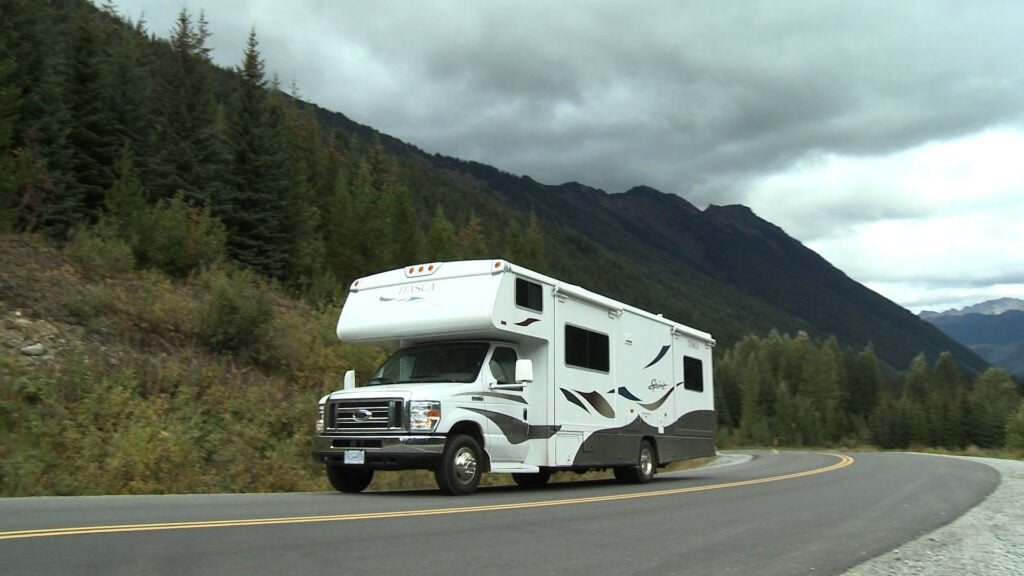
RV campgrounds can get quite noisy, with different sounds like kids having fun and generators running. It might be hard to find a peaceful spot, especially when many people are there. The noise can make it tough to sleep well and enjoy your time. But, if you look up campgrounds and read what others say about them before you go, you can pick more peaceful ones. You can also use things that block out noise or choose spots far from busy areas to make dealing with noise easier.
Conclusion
Living in an RV full-time can be an exciting adventure, allowing you to experience new places and have a simpler lifestyle. However, like any decision, some features require careful thought. One challenge is the limited space. RVs are compact, offering less room for your belongings and activities. Maintenance is another factor. Just like houses, RVs demand regular upkeep, and repairs can pose challenges.
It might be more affordable than a traditional home, but expenses like fuel, campground fees, and maintenance can gather. This discussion will help you find these downsides of full-time RV living and help you make the right decision about whether this lifestyle suits you.

